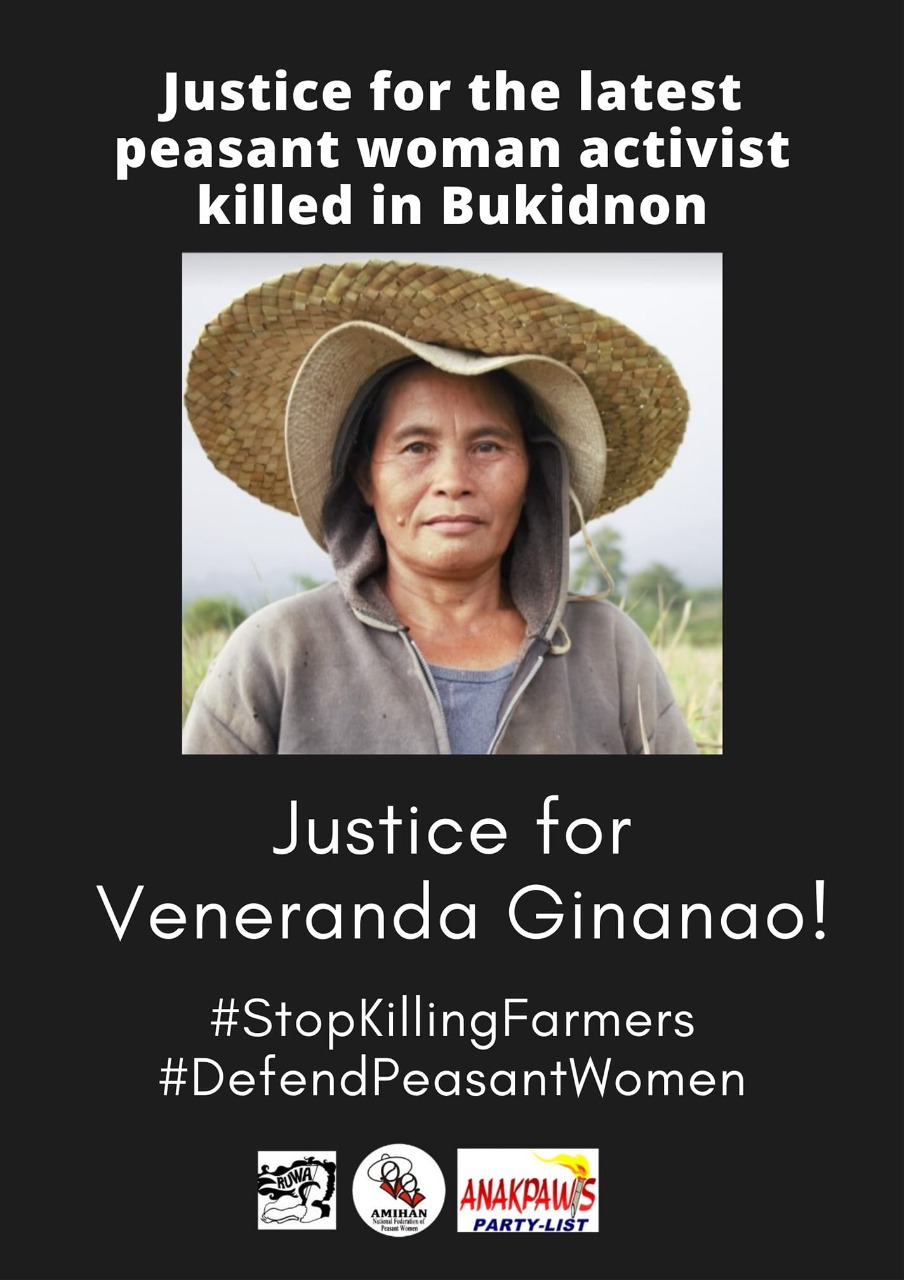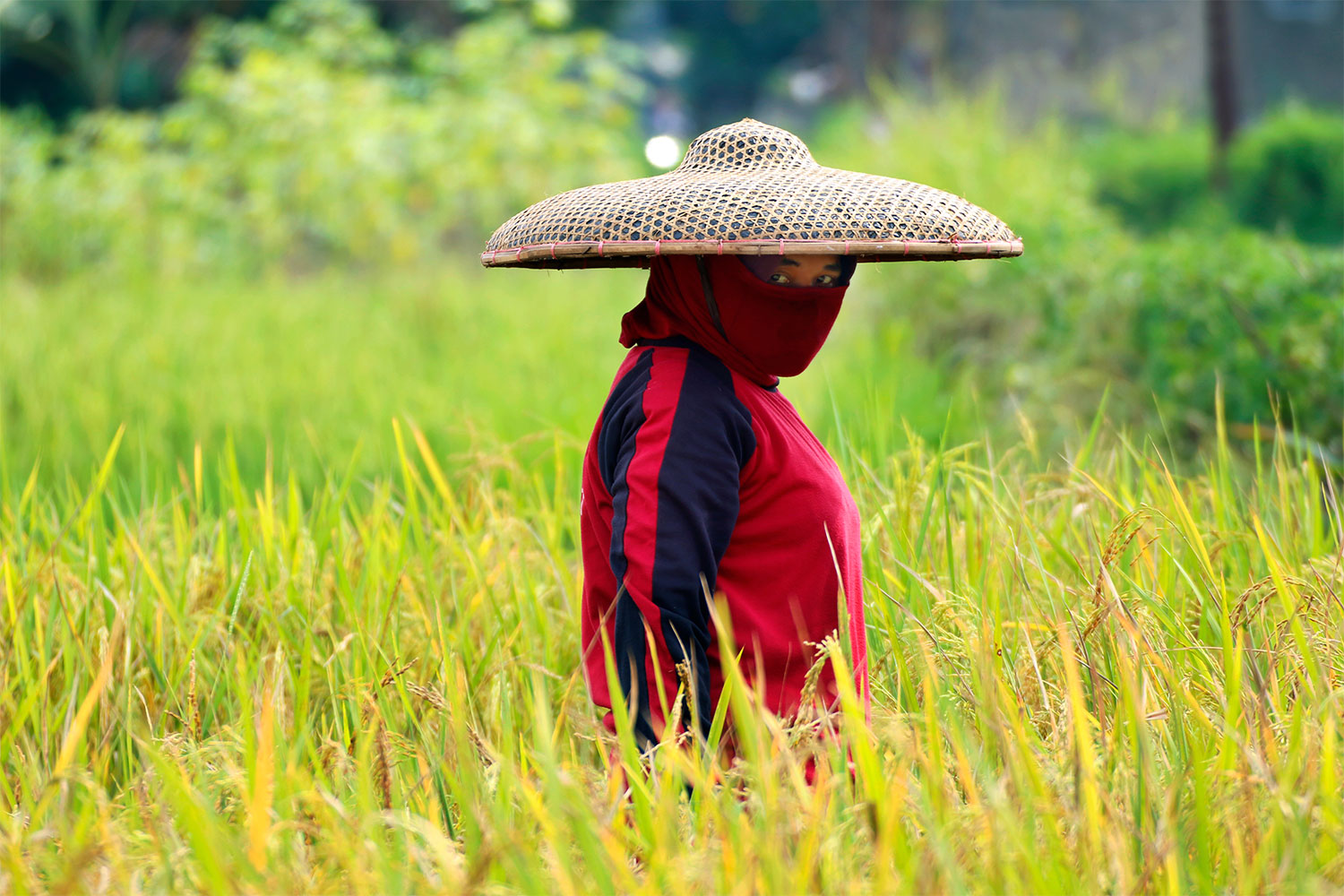On International Rural Women’s Day, the Asian Rural Women’s Coalition (ARWC) and People’s Coalition for Food Sovereignty (PCFS) stands in solidarity with peasant women across the world defending their land and rights, sovereignty and dignity against worsening attacks under an oppressive, exploitative and patriarchal global food system.
The Rural Women’s Unity Statement of the recently held Global People’s Summit (GPS) on Food Systems—endorsed by women’s organizations from Asia and the Pacific, Latin America, and Africa—is a powerful indictment of the corporate food empire that has been the bane of rural women, as well as our call to action. As a portion of the statement reads:
“Today, we unite to stand for just, equitable, healthy and sustainable food systems. We resist all deceptive schemes to consolidate corporate control over agriculture that are done in our name. We firmly believe that food systems must change and be anchored on women peasant’s rights to land, water and resources, women and community-led agroecology, people’s food sovereignty and the right to adequate, safe, nutritious, and culturally-appropriate food.”
Rural women—who are seed savers and land tillers, family and community leaders, resource managers and biodiversity conservators—have historically been at the forefront of peasant movements. Rural women experience most acutely the effects of hunger and indebtedness of peasant families, landlessness, gender and caste-based violence, loss of biodiversity and traditional knowledge, pay inequality and hazardous work in plantations, among others. They have the most to gain when their rights are recognized and concrete victories are achieved through collective struggle. Unfortunately, they also bear the brunt of human rights violations committed by state forces, capitalists, and landlords who—much like criminal abusers of women—use brute force to maintain power and dominance.
According to PAN Asia Pacific’s Land and Rights Watch, from January to September 2021 alone, seven women were killed, 16 were arrested and jailed, and five were threatened, harassed and assaulted due to land-related conflicts. Cases were recorded in Colombia, Peru, Kosovo, India, Philippines and Honduras.

In Asia, hotspots include the Philippines and Cambodia. In the Philippines, 44 peasant women have been killed under the Duterte administration, according to AMIHAN National Federation of Peasant Women. Sixty-five peasant women, who are engaged in various community land struggles and relief efforts, were also imprisoned for trumped-up charges. This includes pregnant and nursing mothers, one of whom, Nona Espinosa, lost her three-month old baby while in detention. AMIHAN also had their bank assets frozen by the government without due process. In Cambodia, three of the six Mother Nature activists who are in detention for “royal insult” are women. They were arrested for opposing the filling-in of a city lake and documenting pollution runoff into the Tonle Sap river. Several community representatives of Coalition of Cambodian Farmers Community, including women, have also been arrested for criminal charges such as “inciting to commit acts that cause serious social unrest” due to their advocacy for land rights.
In West Asia-North Africa, Israel has jailed 36 women Palestinians struggling for the freedom of Palestine from the Zionist occupation. They are detained in dismal prison facilities, and often face discrimination, abuse, and even torture by Israeli soldiers — a clear violation of the International Humanitarian Law.
In 2020, an average of four land and environmental defenders were killed per week, with over half of the attacks occurring in Colombia, Mexico and the Philippines. Global Witness notes that “whilst the recorded killings against women appear lower (1 out of 10), those who act and speak out may also face gender-specific threats, including sexual violence.” This year, the Palestinian casualties of the escalating conflict by the Israeli occupation is the highest since 2015, even amid pandemic. The number of Palestinian women and girls killed in 2021 (69), in fact, has surpassed the combined figures from years prior since 2015 (44). In Colombia, women who participated in a national strike were raped by the Army, according to groups who reported during the GPS Rural Women’s Workshop.
Despite the threats and attacks faced by peasant women, they continue to toil tirelessly not just to feed the world, but to radically transform food systems through organizing and mobilizing communities, challenging land and property laws that fail to provide women equal access to land, campaigns against monoculture plantations, women-led collective agroecological farming, and campaigns against genetically-modified and biofortified crops that target women, among others. We call on all sectors to defend peasant women. To do so is to defend the future of food systems.###








Discussion about this post